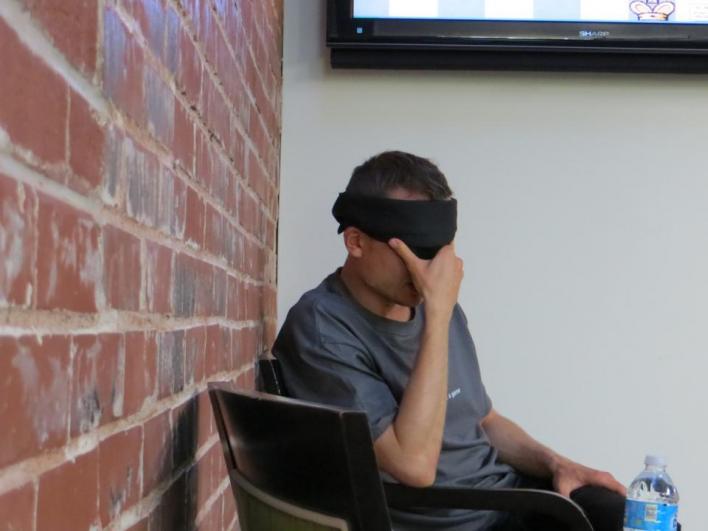
Your opponent opens with e4. Your speakers emit the synthesized sound of a piece thunking down on wood. You begin to wonder: What system does he hope to play? Is this his usual opening? Does he have experience with this or that line?
All you know about your opponent is a username, a country, and a rating -- all of which could be false. The person across the board from you -- across the web, across the world -- might be a retired grandfather, a stay-at-home mom, or a student just entering middle school. Will their play give you some insight into who they are? And really, does it matter?
One thing I often hear from adult beginners is that they find it challenging to play against children. The idea that a young player could beat them at anything, let alone chess, sends them reeling with shock. It’s embarrassing to lose to a kid, they protest.
New players often struggle with the idea that chess skills transcend age and culture. Is it truly shocking that a child might defeat an adult at chess? For those of us with experience in the game, it comes as no shock at all. Skill at chess is not a reflection of age, but of experience. An adult who is new at tennis will likely lose to a youth who has been playing for several years. Why should chess be any different?
Your ego is your own worst enemy in chess. Perhaps you dislike your opponent on a personal level, and you don’t want him to have the satisfaction of beating you. These thoughts interfere with the clarity of your thinking -- because you are deathly afraid of losing and having to deal with his smug attitude -- and you don’t play your best as a result. But does the objective quality of your opponent change because it is someone you dislike? Of course not.
Chess is a language unto itself. It should not matter where your opponent lives or what tongue he speaks. The moves that appear on the board should be all you need to know about the person sitting across from you. Who they are, what they do outside the chess hall -- these things should be irrelevant while the timer is running.
Of course, this isn’t the whole truth. Experienced players know that psychology is an extremely important element in the game of chess. If you play moves with confidence and exhibit strong, assertive body language, your opponent may be psyched out and play worse. By the same token, a trembling hand and nervous expression may strengthen your opponent’s resolve, actually causing them to play better. Chess will never be a pure language or mathematical calculation, because we’re always taking into account our human opponent and trying to read his mind.
Except over the internet. If we have no idea who we are playing or what they look like, our opponent becomes an unpredictable enigma. His rating may be 1650, but is our opponent truly that strong? Perhaps the rating is inflated, as a result of some lucky wins against high-rated friends. Or more insidious still, are they using a computer engine to reveal the best moves? These questions circle through our minds and affect our play. Online, we cannot rely on psychology to get an edge. If we don’t know our opponent’s identity, we have only our own mind to worry about.
So which situation is preferable: The opponent known, or unknown?
For practical purposes, the situation we need to worry about the most is the known opponent, because competitive chess is a sport that must be played in person.
If only we could somehow convince ourselves that there is no physical opponent in the chair opposite, just like on the internet. Indeed, some players try to do exactly this. How many players have you seen in the tournament hall hunched over their boards with their hands forming a visor around their eyes to block out all distractions -- opponents, kibitzers, directors -- and focus their attention solely on the wooden army before them. Is this truly an effective tactic? To be honest, I’ve never tried it myself. It seems to me a somewhat disingenuous technique, because I know I could never really forget about my opponent’s presence, even if I physically blind myself to it.
Like the amateurs who shake their heads in disbelief at having been bested by youngsters, we need to overcome our own egos to raise the level of our play. The conflict in chess is twofold. First, there is the outward conflict of two armies moving inexorably against each other. But the second conflict is much more subtle, and perhaps much more taxing. The second conflict is psychological. It is not simply a contest for mental domination over your opponent, but a struggle to master your own mind. The battle to control your ego during a chess game is the most important battle of all.


